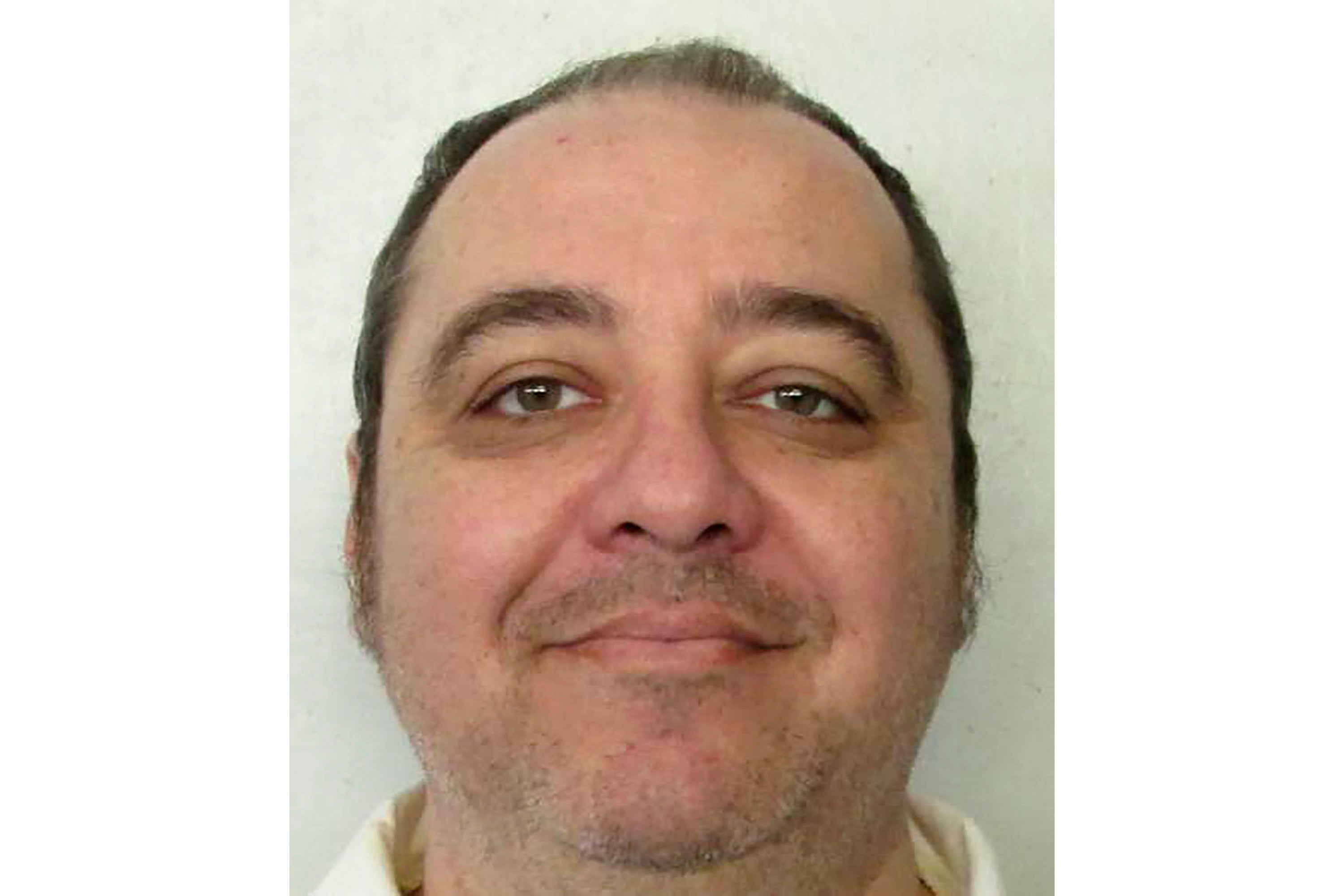Alabama set to perform first ever nitrogen execution that could be dangerous for everyone in the room
The US Supreme Court has also declined to intervene in the case
Kenneth Eugene Smith is slated to become the first person in the world put to death with nitrogen gas after the US Supreme Court and a federal appeals court both refused to stop his execution on Thursday.
The US Supreme Court declined his stay of execution on Wednesday afternoon, while news of the federal ruling came around 7pm. Smith is scheduled to be put to death around 6pm on Thursday at William C Holman Correctional Facility in Atmore.
“Smith has failed to show a substantial likelihood of success on the merits of his claims,” the 11th US Circuit Court of Appeals ruled. Smith’s attorneys asked the court to block the execution because of the risks associated with the untested method, which has been publicly questioned by the UN and veterinarians.

“Smith may not be constitutionally guaranteed a painless death, but I have concerns that these circumstances may rise to a cruel and unusual execution,” Judge Charles R Wilson wrote in the majority opinion.
Earlier this month, US District Judge Austin Huffaker declined to block Smith’s execution and his attorneys appealed the decision. On Thursday, the appeals court affirmed his ruling.
Judge Jill A Pryor wrote the only dissenting opinion. The cost of using the method, she wrote, “will be Mr Smith’s human dignity, and ours.”
Referring to the previous ruling from Judge Huffaker, she added, “I part with the majority opinion because I believe the district court clearly erred in its factual findings regarding the substantial risk part of the Supreme Court’s Eighth Amendment test.”
One of the main concerns Smith, 58, has raised regarding the execution method is the likelihood that he’ll suffocate on his own vomit. Vomiting is a known side effect of oxygen deprivation and the prisoner has said that he frequently suffers from nausea due to his post-traumatic stress disorder condition.
Smith said he sustained the condition after his botched execution attempt in 2022 during which officials were unable to insert intravenous lines into his system for four hours to administer lethal drugs.
When deciding the logistics of a second execution attempt, Smith voiced his preference for nitrogen gas but has expressed concerns about the state’s process for using the method. According to the state’s heavily redacted protocol, prisoners are to be fitted with a mask and breathing tube to control gas, slowly depriving them of oxygen.
If not done correctly, Smith could experience suffocation or be left in a vegetative state.
Judge Huffaker said Smith would only suffer from additional pain in a series of unlikely circumstances. Judge Pryor disagreed, citing how officials with the Alabama Department of Corrections said they would not intervene if Smith were to start retching.
“When a person inhales vomit and asphyxiates, he experiences ‘painful physical sensations of choking and suffocation,’” she wrote. “As I see it, this cascade of likely events is, in turn, likely to prolong or superadd pain and suffering to Mr Smith’s death.”
Robert Grass, an attorney representing Smith, said he intends to appeal the latest federal court decision to the Supreme Court.
In the petition filed earlier this month, Mr Grass asked the court whether officials have the right to execute him a second time and whether a second execution attempt would constitute “cruel and unusual punishments” under the Eighth and 14th Amendments of the US Constitution.
The Supreme Court did not include additional comments in their rejection and there were no public dissenting opinions. In response to the request, the state called the untested method “perhaps the most humane method of execution ever devised.”
If a second appeal is unsuccessful, Smith could become the first person to be executed with any type of gas since 1999, per the Death Penalty Information Center.
Smith was convicted of murdering Elizabeth Dorlene Sennett, a pastor’s wife, in 1988 in a murder-for-hire scheme in Colbert County. He was part of a two-person team paid $1,000 each to commit the crime. Upon entering the woman’s home, officials discovered she’d been stabbed 10 times.
In 1996, A jury voted 11 to 1 to sentence Smith to life in prison, but the judge presiding over the judge overrode the verdict in favour of the death penalty. The state recently barred the practice of judicial override for capital punishment but the law does not apply retroactively.
Alabama approved nitrogen gas for executions in 2018.
The Independent and the non-profit Responsible Business Initiative for Justice (RBIJ) have launched a joint campaign calling for an end to the death penalty in the US. The RBIJ has attracted more than 150 well-known signatories to its Business Leaders Declaration Against the Death Penalty – with The Independent as the latest on the list. We join high-profile executives such as Ariana Huffington, Facebook’s Sheryl Sandberg and Virgin Group founder Sir Richard Branson as part of this initiative and are making a pledge to highlight the injustices of the death penalty in our coverage.
Join our commenting forum
Join thought-provoking conversations, follow other Independent readers and see their replies
Comments
Bookmark popover
Removed from bookmarks